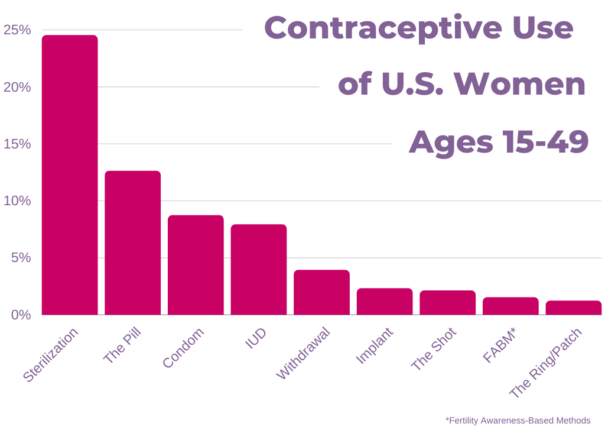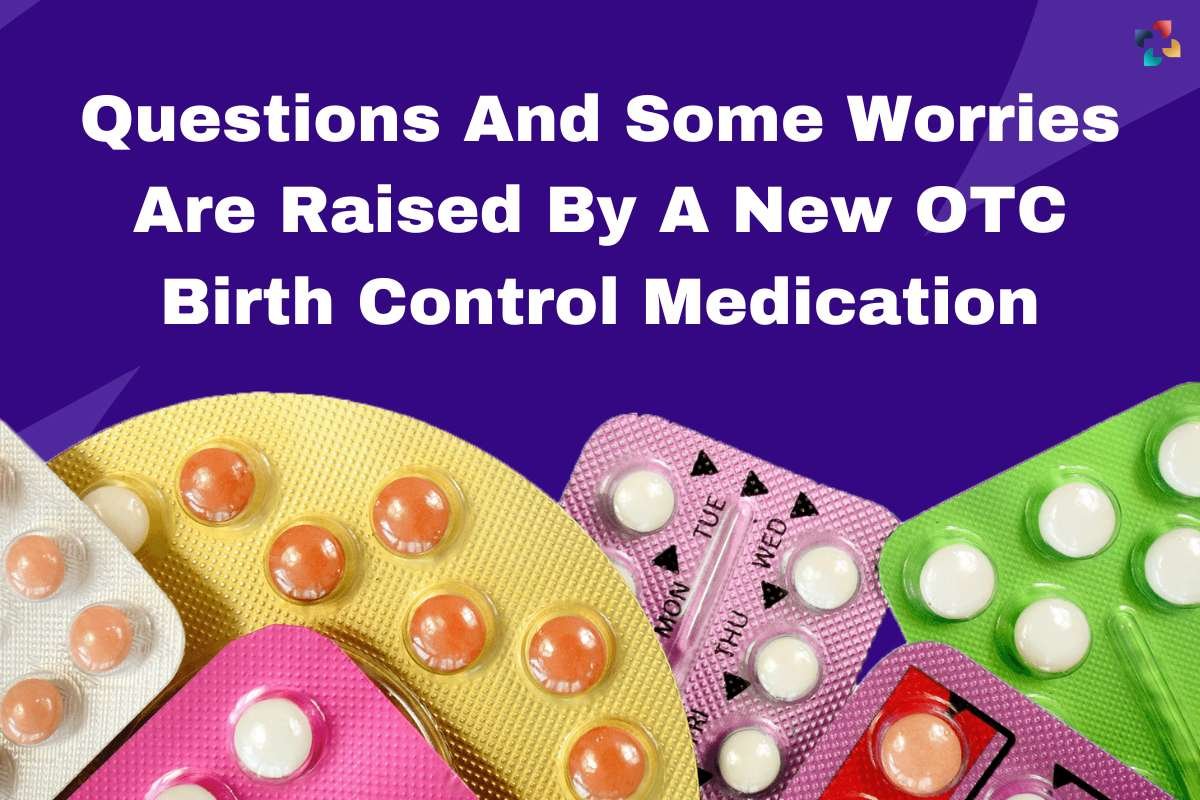Access To Birth Control: Examining The Impact Of Over-the-Counter Options Post-Roe

Table of Contents
Increased Accessibility and Reduced Barriers to Contraceptive Use
Access to birth control remains a critical issue, particularly for those facing significant barriers to accessing traditional healthcare services. Over-the-counter birth control offers a potential pathway to overcome these obstacles.
Geographical Limitations and Healthcare Deserts
Many individuals, especially those in rural areas or underserved communities, experience significant challenges accessing healthcare providers. This is often due to:
- Longer travel distances: Rural residents may face lengthy commutes to reach healthcare facilities.
- Limited clinic availability: A shortage of clinics and healthcare professionals exacerbates the problem.
- Lack of transportation: Reliable transportation is not always accessible, particularly for those with limited financial resources.
- Financial constraints: The cost of travel, appointments, and prescriptions can be prohibitive.
Over-the-counter birth control could significantly mitigate these issues. Increased availability in pharmacies and other convenient locations would eliminate the need for travel to specialized clinics, empowering individuals to manage their reproductive health with greater autonomy and convenience. This is particularly crucial for those living in healthcare deserts, where access to comprehensive reproductive healthcare is severely limited.
Cost as a Barrier to Contraception
The financial burden associated with prescription birth control is a major barrier to access for many. This includes:
- High cost of prescription medications: The price of prescription contraceptives can be substantial, especially without insurance.
- Insurance co-pays: Even with insurance, co-pays can represent a considerable expense.
- Lack of insurance coverage: Many individuals lack adequate health insurance coverage, leaving them responsible for the full cost of contraception.
Over-the-counter birth control could dramatically lower these costs. The elimination of doctor's visits and prescription fees would make contraception significantly more affordable, potentially leading to higher uptake rates and improved reproductive health outcomes. This increased affordability could be especially impactful for low-income individuals and families.
The Role of Stigma and Societal Attitudes
Social stigma surrounding reproductive health significantly impacts access to care. This stigma manifests in several ways:
- Fear of judgment: Many individuals hesitate to discuss contraception with healthcare providers due to fear of judgment or disapproval.
- Discomfort discussing contraception: Open conversations about sexual health and family planning remain challenging for some individuals and communities.
- Cultural or religious beliefs: Cultural or religious beliefs may influence attitudes toward contraception and access to services.
Over-the-counter birth control could help reduce this stigma by removing the need for a doctor's visit. This increased privacy and autonomy could encourage individuals to take control of their reproductive health without feeling judged or uncomfortable.
Potential Impacts on Public Health Outcomes
Increased access to birth control, particularly through over-the-counter options, could have significant positive impacts on public health.
Reduction in Unintended Pregnancies
Improved access to contraception is strongly associated with a reduction in unintended pregnancies. This could lead to:
- Lower abortion rates: Increased contraceptive use is expected to correlate with fewer unintended pregnancies and consequently, a reduction in the need for abortions.
- Reduced need for crisis pregnancy centers: With fewer unintended pregnancies, the demand for services at crisis pregnancy centers might decrease.
- Decreased maternal mortality rates: Improved access to birth control can lead to healthier pregnancies and reduce risks associated with unintended pregnancies.
These potential benefits emphasize the vital role of accessible and affordable birth control in achieving better public health outcomes.
Improved Sexual and Reproductive Health
Beyond reducing unintended pregnancies, increased contraceptive access has broader positive effects on sexual and reproductive health:
- Improved family planning: Individuals can make informed decisions about family size and spacing, enhancing their overall well-being.
- Decreased risk of sexually transmitted infections (STIs): Increased contraceptive use can lead to safer sexual practices, reducing the risk of STIs.
- Better control over reproductive health decisions: Access to birth control empowers individuals to make autonomous decisions about their bodies and futures.
Empowering individuals to control their reproductive health leads to improved overall health and well-being.
Potential Challenges and Concerns
While expanding access to over-the-counter birth control offers numerous advantages, it also presents potential challenges:
- Need for increased public education and awareness campaigns: Comprehensive education is crucial to ensure responsible and effective use.
- Potential for medication interactions: Users need to be aware of potential interactions with other medications.
- Ensuring accurate and reliable product information: Clear labeling and readily available information are essential.
Addressing these concerns through robust educational initiatives, clear labeling requirements, and accessible information is crucial for successful implementation of over-the-counter birth control options.
Conclusion
The post-Roe landscape necessitates a reassessment of access to birth control. Expanding access to over-the-counter birth control options presents a significant opportunity to improve reproductive health outcomes, reduce unintended pregnancies, and empower individuals to make informed choices. While potential challenges exist, thoughtful implementation, alongside public education and awareness campaigns, can help ensure responsible and effective use of over-the-counter contraception. To ensure equitable access to reproductive healthcare, we must prioritize and advocate for increased access to affordable and convenient birth control options, including further exploration of over-the-counter birth control solutions in a post-Roe world. Let's work together to ensure everyone has the access to birth control they need.

Featured Posts
-
 Leon Draisaitl Injury Out Against Winnipeg Jets
May 10, 2025
Leon Draisaitl Injury Out Against Winnipeg Jets
May 10, 2025 -
 Infineon Ifx Sales Guidance Misses Estimates Amid Trump Tariff Uncertainty
May 10, 2025
Infineon Ifx Sales Guidance Misses Estimates Amid Trump Tariff Uncertainty
May 10, 2025 -
 Alex Ovechkins Record 9 Nhl Players Who Might Break It
May 10, 2025
Alex Ovechkins Record 9 Nhl Players Who Might Break It
May 10, 2025 -
 The Rise Of Otc Birth Control A Post Roe Reproductive Rights Analysis
May 10, 2025
The Rise Of Otc Birth Control A Post Roe Reproductive Rights Analysis
May 10, 2025 -
 Stronger Eu Response To Us Tariffs Demanded By French Minister
May 10, 2025
Stronger Eu Response To Us Tariffs Demanded By French Minister
May 10, 2025
